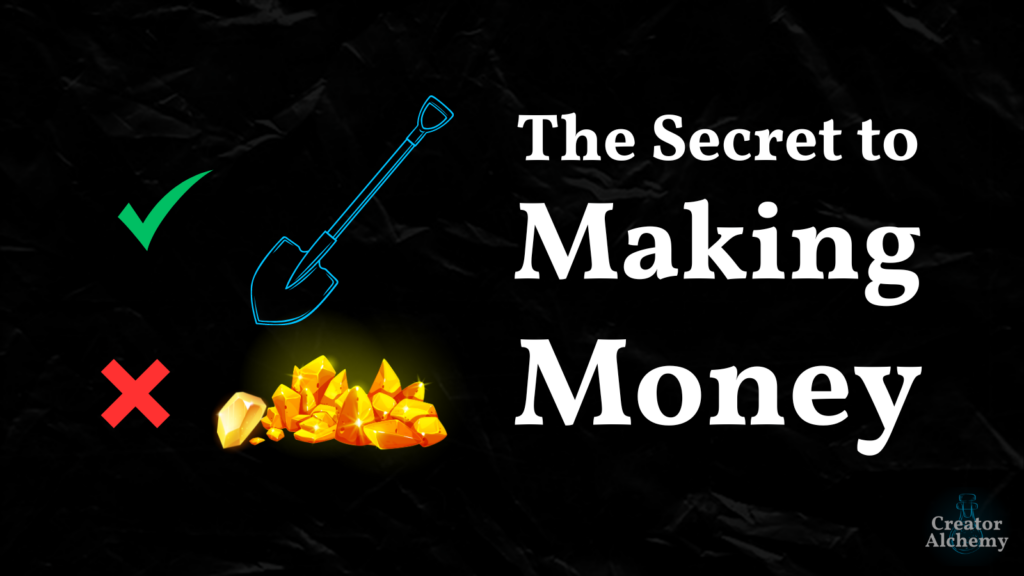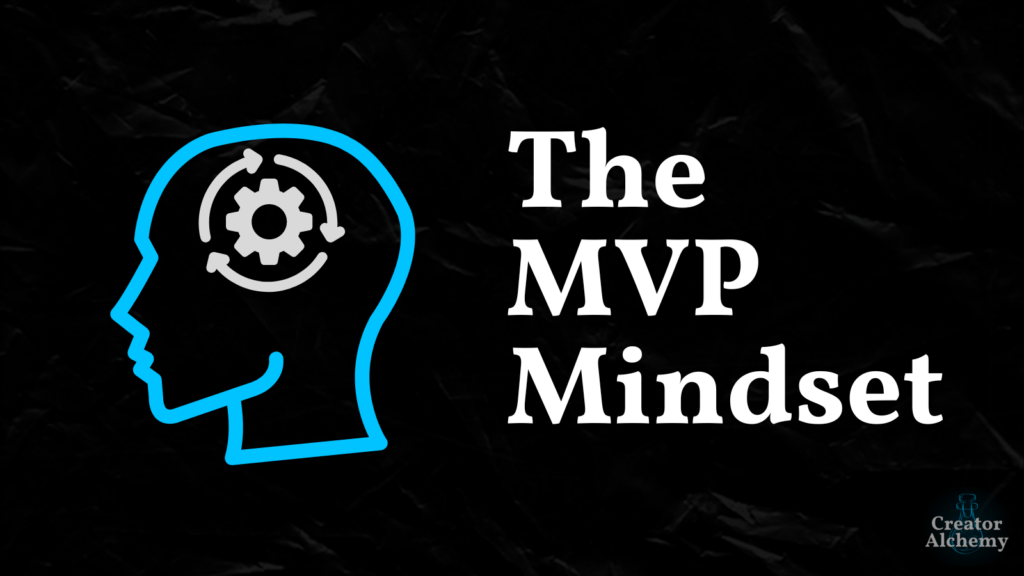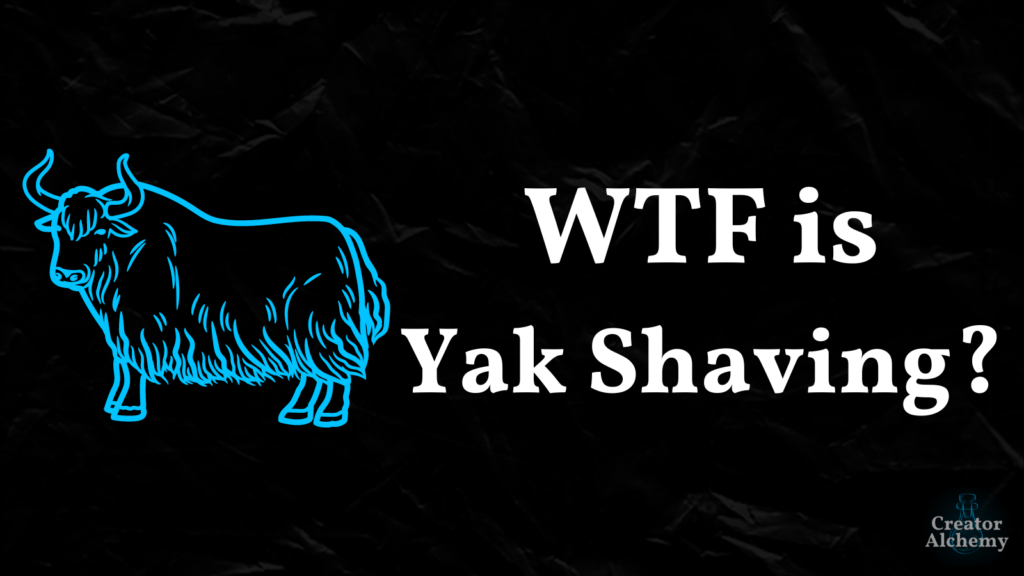Imagine you’re getting ready to embark on an ocean voyage and have two captains to choose from:

Captain Nicholas, aka, Zippie Nickie—a brand new captain with limited sea experience, but who’s full of enthusiasm and bravado.
Captain Bartholomew, aka, Gnarled Bart—a seasoned captain whose face is etched like an ancient oak’s bark and who has definitely seen some shit in his decades-long tenure navigating treacherous waters.
Which captain do you choose?
If you’re a sane human being who values your life, you’ll probably go with Gnarled Bart, right? Because Gnarled Bart is an expert when it comes to navigating these waters. Zippie Nickie, for all his enthusiasm and cocksureness, doesn’t really know what the hell he’s doing.
But despite how clear the right choice is in this situation, there’s a common rhetoric online where you’re told you shouldn’t go with the expert.
Instead, you should learn from someone two steps ahead of (or teach people two steps behind) you.
So why is this rhetoric so common online, and why do so many people buy into it?
And more importantly, what are the consequences of this philosophy for us as creators?
Let’s dive in…
•••
The Dangers of Downplaying Expertise
Nowhere else in life do we listen to the “2-Steps” gurus telling us to learn from people two steps ahead of us, or teach to people two steps behind us.
You wouldn’t hire a law student to represent you in court or accept a diagnosis from a 2nd-year medical student.
You’d go to an actual expert.
“But Corey!” shout the 2-Steps crowd, “Novices aren’t blinded by the curse of expertise! Since they’ve recently learned things, they’re closer to where you’re at in your journey and can give you relevant information without overwhelming you! An expert would overcomplicate things or gloss over fundamentals that a brand new person needs! This is the beauty of learning from someone a few steps ahead of you!”
This is some of the most trash advice on the internet.
Novices lack nuance.
They rigidly adhere to what they’ve recently learned without considering how limited their worldview is.
Like a sea captain who says, “Well as far as I can see out into the ocean, it looks clear. So the entire ocean must be fair weather and smooth sailing.”
And because novices lack nuance, they think linearly—taking the most obvious, face-value route without regard to contextual or circumstantial factors.
Take your average psychology undergrad for example…
As soon as they learn about the DSM (basically the book therapists use to diagnose mental health issues), they immediately start diagnosing themselves and everyone around them:
- “Oh, you can’t pay attention for 8 uninterrupted hours? Well Becki, gurl you got ADHD!”
- “Oh, Chris, you sometimes get moody for no reason? That’s textbook Bipolar Disorder!”
- “Oh, you like talking about yourself and can be sensitive to criticism? You’re a classic example of Narcissistic Personality Disorder, Pat!”
But you know what?
Becki could have ADHD. Or she could be exhibiting completely normative behaviors. Or maybe her inattentiveness is due to autism, or anxiety. She could even just be short-sighted and zone out because she can’t see the fucking whiteboard because she sits in the back of the classroom.
Chris’s emotional lability could be due to tons of different factors. He could be burnt out (not a diagnosis), depressed, anxious, be in the middle of an existential issue (also not a diagnosis). Or maybe he’s not getting “moody” for no reason—maybe there is a specific environmental trigger that he’s simply unaware of.
Pat could be a clinical narcissist. Or they could have Imposter Syndrome (not a real syndrome or diagnosis) and be trying to put themselves out there but they’re still super self-conscious and self-critical. They could have Borderline Personality Disorder. They could have a trauma history that predisposes them to personalize and internalize any perceived threat to themselves or their identity. Or a host of other equally viable explanations.
But the novice doesn’t know this—they can’t navigate nuance because the ability to navigate nuance only comes with expertise (in fact, it’s a hallmark of expertise).
So why is this advice so rampant?
•••
Dunning-Kruger and the Death of Expertise
You’ve probably seen this popular depiction of the Dunning-Kruger Effect that illustrates how people who barely know anything about a topic vastly overestimate their competence, people who continue to learn despair at the realization they know nothing compared to the vastness of the topic, and as people continue to learn more, their competence and confidence grow together.

So basically, the expert and novice have a similar level of confidence in their abilities—but only the expert can back up that confidence with actual competence.
The issue with the 2-Steps movement is it tells people at the “Peak of Mount Stupid” to teach people who know nothing.
So people who no virtually nothing:

Teach complete beginners two steps behind them:

And complete beginners keep learning from people two steps ahead of them.
In an endless cycle where people with virtually zero competence but tons of confidence dominate the conversation and tell everyone else that expertise is overrated because [insert topic] is actually super simple to understand if you just do the 80/20 of it.

This cycle is how expertise dies.
There’s a difference between learning the true 80/20 of something and just learning 20% of a topic and assuming you know 80% of it.
Experts know the 20% that drives 80% of results.
Novices learn 20% and assume they understand 80%.
Since no one ever ventures beyond “Mount Stupid.” They continue to oversimplify everything because they have an unearned confidence, they only teach people a few steps behind them, and as soon as things start to feel hard, they move onto something else, reach the “Mount Stupid” in that topic, teach those behind them, hit resistance, bail to something else, and so on.
They never stick with it long enough to develop true expertise.
Eventually, people forget just how deep and nuanced a topic is because they don’t know what they don’t know and assume their limited worldview is all there is to see.
So they downplay the importance of expertise, and everyone around them slowly starts to believe them.
But in reality, if you’re a beginner, you’re better off learning from an expert:

Or at least a non-expert who’s much further along:

For one simple reason:
They’ve both survived the “Valley of Despair,” which is where they realized how complicated the world actually is and started learning how to navigate nuance.

People at the “Peak of Mount Stupid” see the world as black and white and give oversimplified prescriptive advice on what you should do.
But anyone who’s traversed the “Valley of Despair” knows just how many shades of grey exist in the world.
This is why anytime you ask an expert about something, they typically start by saying, “Well, it depends,” then they gather more context and factor in your unique circumstances before giving any advice.
Let’s take our captains as an example…

Zippie Nickie and Gnarled Bart have the same map of the voyage ahead.
Nickie plans to follow the map exactly. Since he’s never actually traveled this route, he just assumes the map is all he needs to know to succeed.

Seems simple and straightforward, right?
But Bart has traveled this route many times (and has the scars to prove it). So he can navigate the nuances of the route and keep everyone safe because he’s an expert.
Yes, he knows what’s on the map. But more importantly, he knows what’s not on the map, which is even more important.

The 2-Steps crowd would have you believe Nickie’s the right choice as captain—that Bart has been sailing too long and is out of touch with reality.
But Bart knows what these treacherous waters hold—krakens, whirlpools, pirates, and other monstrosities few have witnessed and lived to tell the tale about.
You know what else isn’t shown on the map? The countless shipwrecks of over-confident, under-competent captains like Nickie and the crews of dreamers who followed them into ruin…
Too many people (myself included) have spent hundreds, even thousands, of dollars on digital products from many a Zippie Nickie claiming to help them navigate the waters of entrepreneurship and content creation with ease:
- Building your business is easy.
- Growing your audience is easy.
- Making money as a solopreneur is easy.
And all they’re left with is the wreckage of their hopes and dreams of a better life.
So why aren’t there more experts?
•••
Where Did All the Experts Go?
The philosophy behind the “2-Steps” crowd is well-intentioned. For too long, expertise has been locked away in the ivory towers of academia or hidden behind paywalls and jargony academic journals. There’s a historically all-too-common undercurrent of elitism and privilege to expertise.
So the “2-Steps” movement gave people permission to start sharing what they knew—which is great.
But most of the time, the people spreading this philosophy:
- Vilify expertise
- Are 100% selling a course that preys on people who want to put themselves and their ideas out into the world, but don’t know where to start
They convince you expertise is overrated, encourage you to share oversimplified prescriptive content, and give you flawed frameworks and templates to spread your message far and wide with minimal effort.
By contrast, cultivating expertise takes a fuck-ton of effort, time, and stress.
It took me 12+ years to become a psychologist between a bachelor’s, master’s, doctorate, licensure exams, thousands of hours of practice, and countless all-nighters.
In my 5-year doctoral program, the third year is known as the “Year of Despair” because of how stressful it is and how many things you have to ace or risk failing out.
I spent many a 12-hour day on campus fantasizing about burning down the psychology building while my classmates chose to cry to cope with all the stress.
I’m not glorifying any of that—that level of stress is completely unnecessary to achieve expertise, but it is the price many experts pay on the path to becoming experts in their field.
Experts are experts for a reason—they’ve spent years, even decades, honing their craft and pouring everything they have into learning how to navigate nuance to help others.
Most people are simply unwilling to pay the costs to become an expert, so when someone comes along and says, “Hey, you don’t need to do all that. You can totally get super rich and famous without having to sacrifice much. Just put in your credit card info and we’ll send you everything you need,” of course people buy in.
But a course won’t make you an expert.
Reading the top 5 books on a topic won’t make you an expert.
Practicing something for a few years won’t make you an expert.
With rare exceptions, expertise takes a decade or more—and that’s just not sexy relative to the 2-Steps’ get-rich-quick rhetoric.
Most people simply aren’t willing to dedicate a decade of their life to something.
But that decade goes by regardless.
Why wouldn’t you want to be an expert in something at the end of those 10 years?
Where have all the experts gone? They never existed. Because no one wanted to pay the price to cultivate expertise.
They preferred to believe the 2-Steps gurus who told them expertise wasn’t worth the price.
They preferred to jump from one thing to the next when they hit the “Valley of Despair.”
They preferred to live in mediocrity and pretend they were great.
Until they slowly forgot just how complex the world is and the depth of understanding it takes to reach their potential and create meaningful change.
So what could make expertise worth the price?
•••
A Call for the Renaissance of Expertise
Expertise allows you to see the world in ways you never could have imagined—that non-experts can’t imagine, because you can’t even explain how you see the world without giving someone several years’ worth of context for them to even begin to comprehend how complex the world is (and that’s just in your small domain of expertise).
Novices can’t navigate nuance, but the world is complex and full of nuance.
The hallmark of expertise is the ability to navigate nuance, so the world needs a revival of expertise and those willing to cultivate it.
Zippie Nickie has read about the ocean. He’s scuttled around the local cove. He’s gotten his clothes wet from small waves crashing against his ship’s hull. He’s seen a couple of cute dolphins swimming near the coast.
Gnarled Bart has battled krakens. He’s clashed swords with pirates. He’s heard the siren’s song seducing him to the murky depths and resisted it just in time. He’s narrowly survived storms so large, they encompassed everything in sight in all directions.
This is why we can’t fear crossing the “Valley of Despair.”
Because crossing it means beginning to cross over into expertise. The “Valley of Despair” is a rite of passage that marks the beginning of our journey into expertise. Baby Bart became Gnarled Bart by persevering through the very things most people avoid—the effort, time, and stress it takes to become an expert.

Nickie and Bart can look at the same ocean. But they don’t see the same ocean.
Bart knows what hides beneath its surface, unlike Nickie. And Bart also knows that he only knows a fraction of what the ocean contains because it’s unfathomably vast and complex—which makes the ocean that much more beautiful to him.
Nickie might like the ocean. But Bart loves the ocean—it’s part of his identity and is always on his mind. His expertise enriches his life and colors his every waking moment (and even his dreams sometimes).
I’ve spent the last 3+ years creating content about psychology—articles, videos, podcasts, courses, etc. And I’ve barely been able to scratch the surface of sharing what I know with the world because there’s just so much about psychology (aka, my area of expertise) that a few years isn’t nearly enough time to communicate the richness and pervasiveness of psychology and how it affects our daily life. And I only know a fraction relative to how broad and complex all the areas that fall under the umbrella of psychology are.
But every day I see psychology at play with everything I do, in everyone I meet, and everywhere around me.
And I deeply want the same for you. I want you to experience the richness—the vitality and passion—that accompany expertise.
And more importantly, the world needs more experts who can navigate nuance.
So please—consider what you’d love to be an expert in and start cultivating it. And if you’re already an expert, consider sharing more of your passion with others.
Because a decade is going to go by regardless.
Where do you want to be and how enriched do you want your life (and the lives of others) to be when it does?



